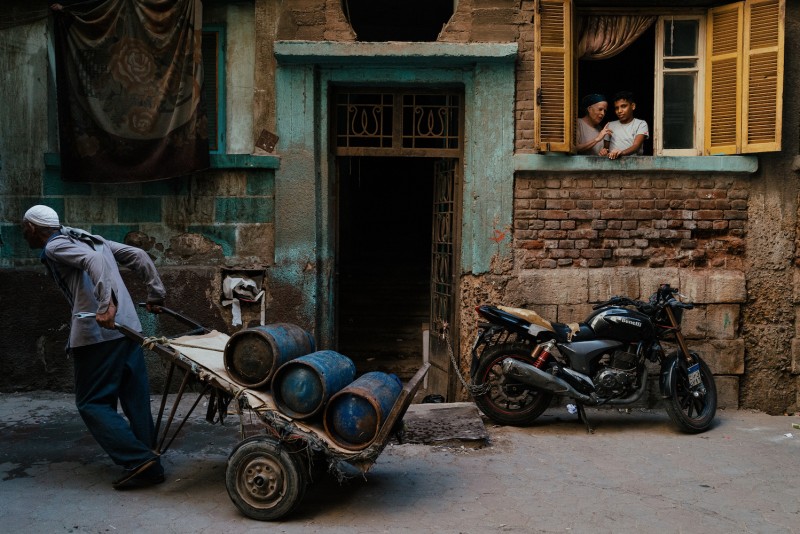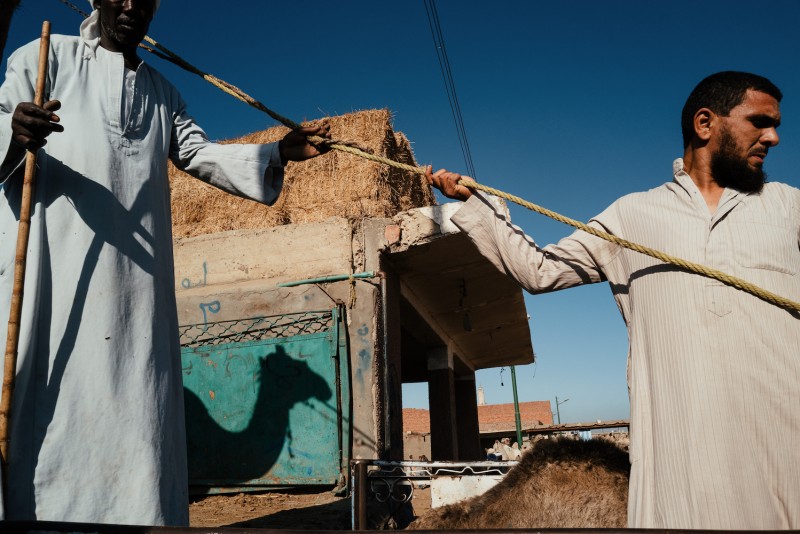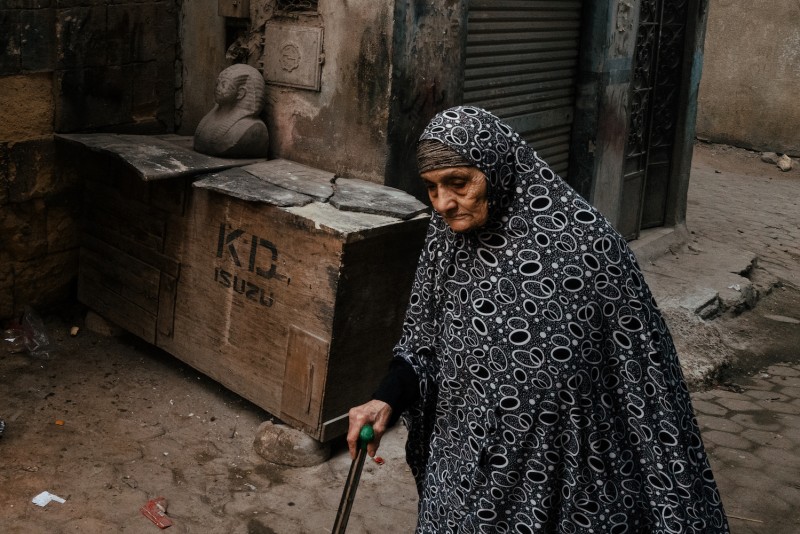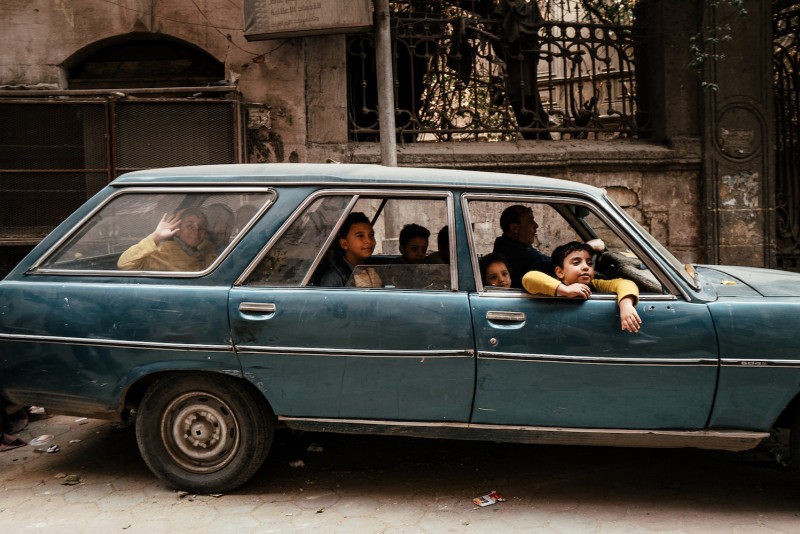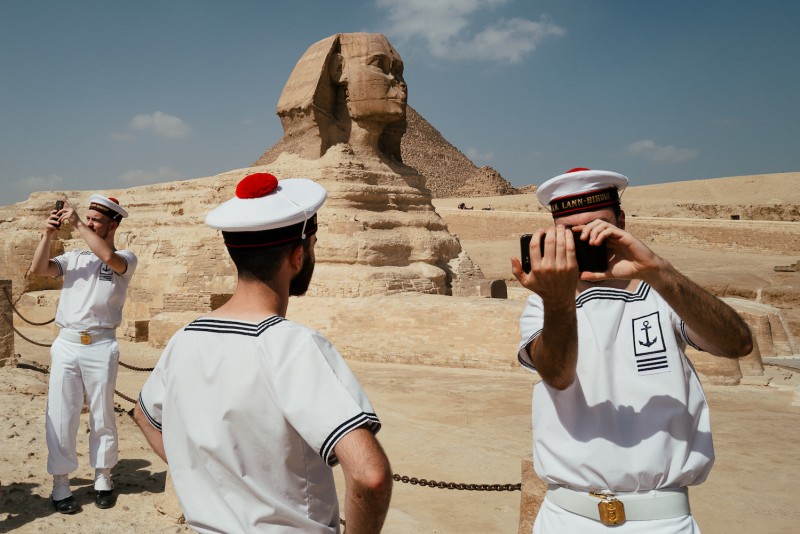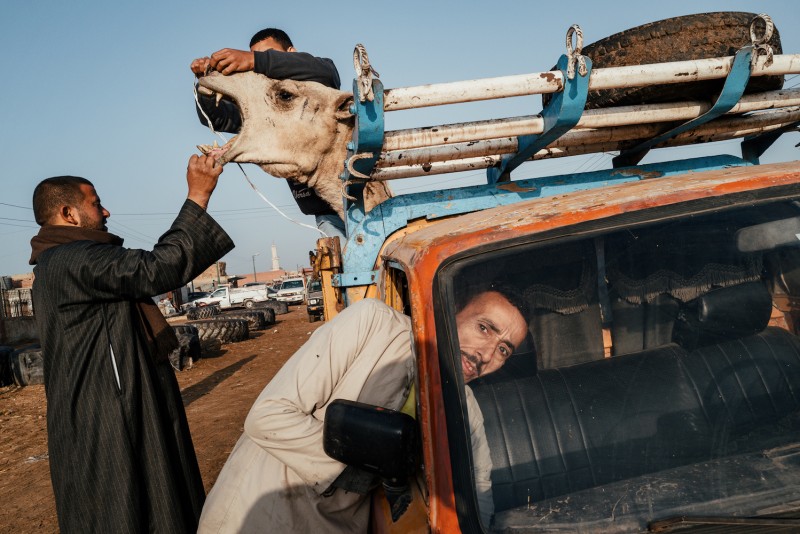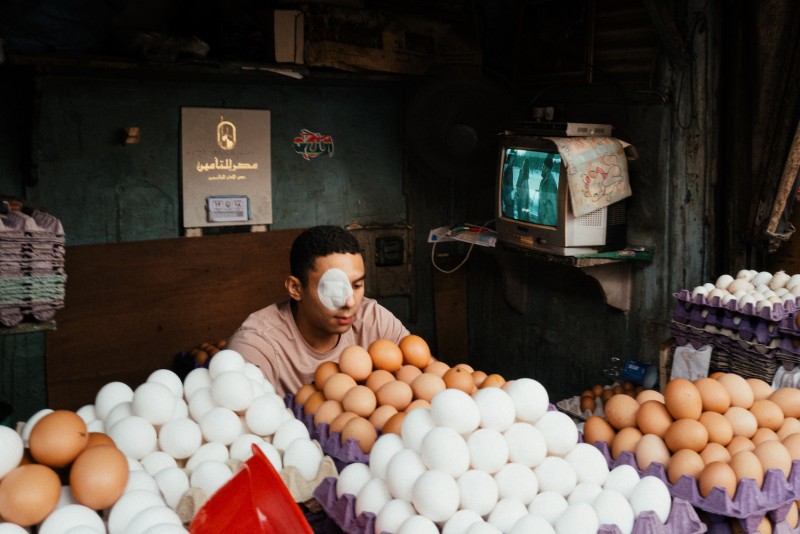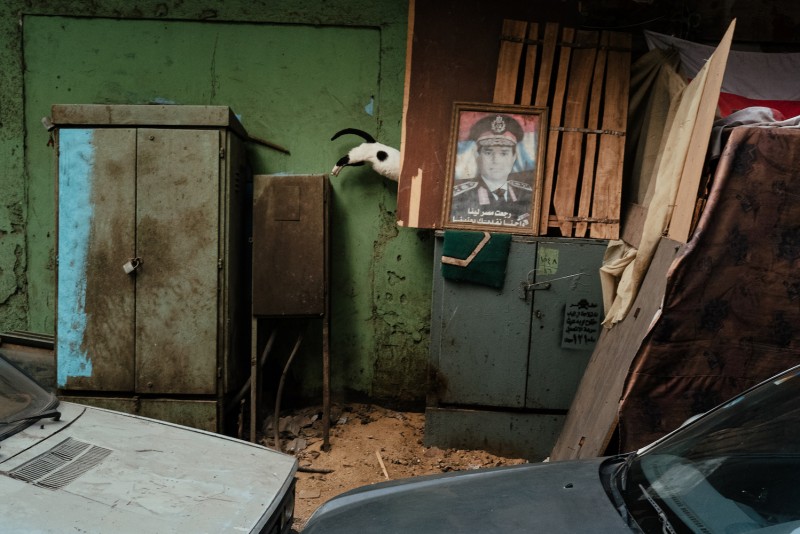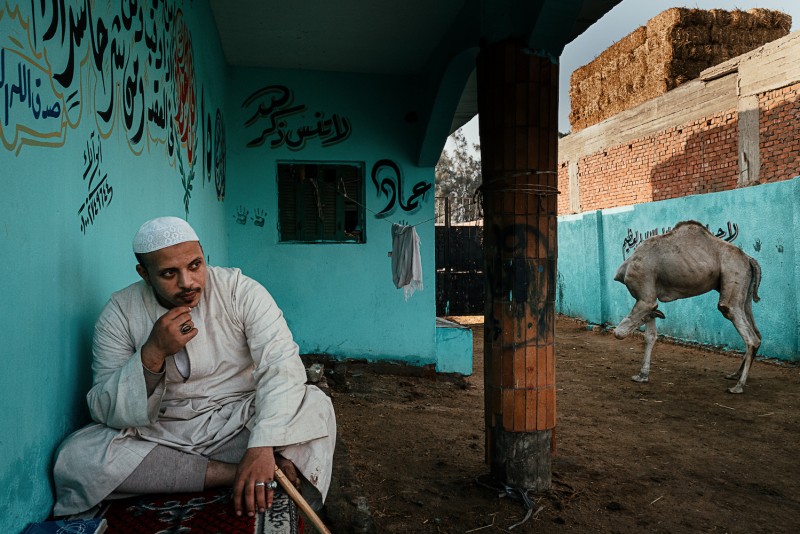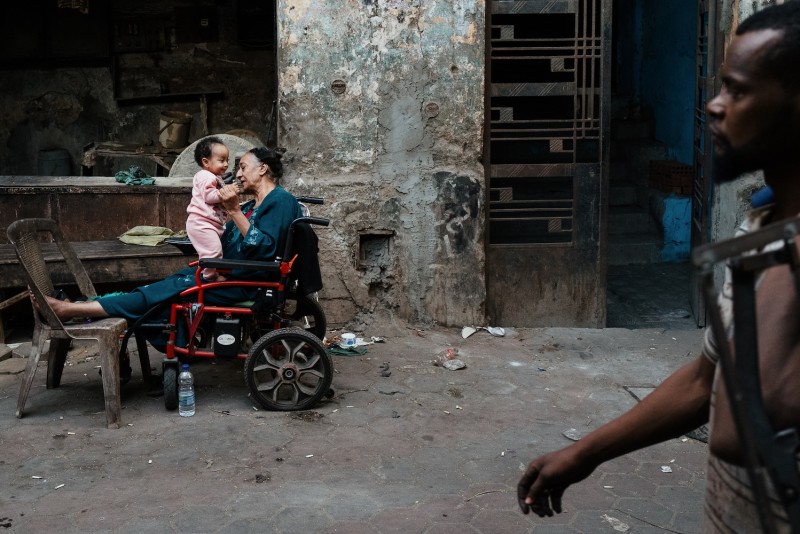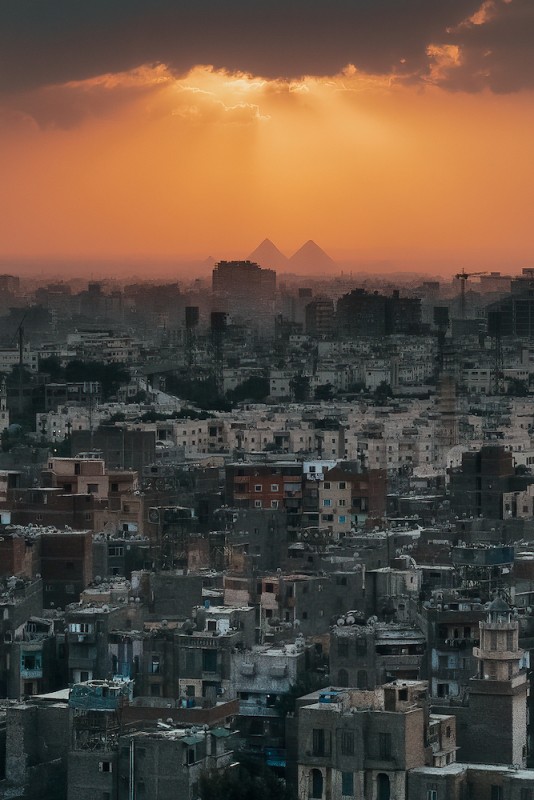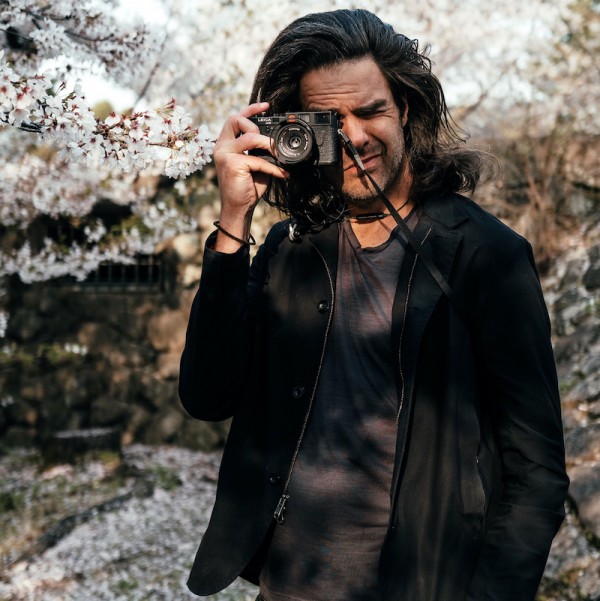A Beautiful Thing Is Never Perfect
A Beautiful Thing Is Never Perfect
Jonathan Jasberg
May 3, 2022
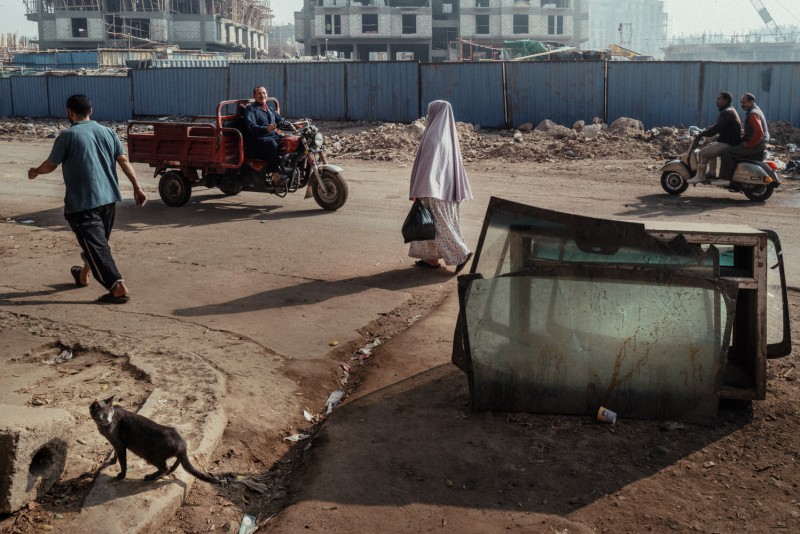
LFI: How did you come up with the idea for this series?
Jonathan Jasberg: Early on in my time in Cairo, as I was photographing in a neighborhood that seldom sees foreigners, an older man stopped me and asked why I was taking photos. In awe of the aged architecture and vivid life I was observing, I motioned and responded: "Look at it, it’s beautiful!". The man looked, looked back at me, and in a confused and somewhat irritated way responded, he said as he walked : "Beautiful? It’s an old mess."
The ancient Egyptian proverb: "A Beautiful Thing Is Never Perfect" seemed very fitting for the photographs I was taking in Cairo. The capital city is a chaotic, sprawling metropolis often viewed as too dangerous and hectic by tourists, who quickly skip through with just a stop at the pyramids and primary museums. As an outsider myself, I aim to explore past the post-card shots of the pyramids and deeper into the complex city. I hope to capture the beautiful, quirky, and emotional moments of daily life and show hidden things that perhaps become too familiar and invisible when you are from there, or have lived there for a long time. These are candid photographs of scenes in daily life that I resonate with, and hope viewers, Egyptians and non-Egyptians alike, resonate with as well.
What is so fascinating about Cairo?
When most foreigners think of Cairo, ancient Egyptian history is the first thing that comes to mind. They may also think of the 2011 revolution and other recent events that have caused a drastic reduction of foreign visitors. Winning the title of the most beautiful city in the world in 1925, Cairo has gone through a turbulent century since, as it has grown into a mega-metropolis of 20+ million people. This unique combination of being steeped in ancient history, as well as complex modern history, is on full display in the equally complex winding streets and vivid lives of the people who inhabit them. To me, this is endlessly fascinating.
Your wonderful pictures seem to tell little stories of life; they look like theatre pieces in a scenario. They often show the simultaneity of different actions. Please describe your working process…
I studied film for a few years before getting into photography. Likely due to this, I tend to photograph and think in terms of scenes rather than focus on individual things or people. Encountering a unique setting or person is just the beginning of the process for me. If I find something of interest, I no longer immediately start shooting as I once did. Instead, I scan the area asking myself what I can add and what should probably be omitted to make a dynamic yet readable image. I also look to see if any intriguing elements are available that I can draw attention to if I adjust the composition with them in mind. From there, I start taking photos and thinking of building the scene, rather than just working the scene. I love looking for things like symbols and hidden Easter eggs that may go unnoticed when first viewing a photo. With people, I sometimes look for more subtle characters that I can incorporate as the main focus, and cause the more obvious main character to feel a bit like the film equivalent of a false protagonist in my mind, resulting in a more compelling scene.
Were there any tricky situations for the equipment? Such as, sand, very bright light…
As a person who travels full-time, the Q2 is a near-perfect camera since I need something that mirrors my lifestyle: simple and minimal. The 28mm lens handles the tight, often dimly lit, neighborhood alleys and streets of Cairo very well, and is perfect for creating complex scenes. My camera has taken a lot of abuse, including going with me on a pretty rough fall down a large flight of concrete stairs, and it still operates flawlessly.
Jonathan Jasberg+-
Jonathan Jasberg grew up in Tucson, where he studied computer science at the University of Arizona. Since 2010, he has spent his time split between Japan, where he studied the language and culture in depth, and over 60 other countries that interest him from a photographic and cultural perspective. At the start of the Covid pandemic, he transitioned from life as a digital nomad in the tech world to photography full-time, which he had pursued as a part-time interest since 2006. Jonathan’s work in Cairo has received awards from numerous prestigious international photography competitions, for both single images as well as the project as a whole. More

